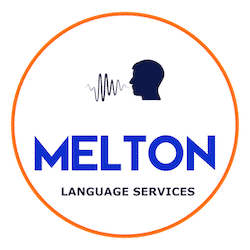Evaluating a Candidate’s English Level
What does the English level on a candidate’s CV really mean for Human Resources? What work can they perform? Can their English level meet your job requirements?
Having worked a lot with Human Resources departments over the years, both in the private and public sector, one of the questions they always ask is:
But what does that English level mean for us? What can they actually DO in English?
Finding the right candidate is difficult even without taking language skills into account. On top of this, Human Resources may not have the skills necessary to make this evaluation of their workers’ English. Here, we hope we can help you in two capacities – By giving you the tools to evaluate what the English level is a candidate/employee has put on their CV or being able to articulate what it is that you need the employee to do.
In a previous blog, English Levels A1 – C2 and Equivalents, we looked at the different types of English exams and what each exam level (A1 – C2) corresponds to, BUT from a working perspective,
What does each English level really mean for a company and HR department?
When Human Resources need to choose an ideal candidate, one of the main skills they have to think about, especially for muti-nationals or companies that are expanding abroad, is if the candidate has the English level to perform the job requirements needed, i.e. negotiating, selling, networking…
- Can the employee work abroad using English as the working language?
- What tasks can they carry out for the company?
- Can we trust the employee to negotiate contracts?
- Will they be able to cope when dealing with native speakers and potentially difficult questions?
This post will address:
This information can be useful for HR in three keys ways when weighing a candidate’s English level against the job tasks required
Firstly, for people already working in the company. Here this information is key in deciding the specific roles /tasks each employee is capable of doing and assigning them accordingly.
Secondly, in the recruitment process, looking at a person’s CV and understanding what the candidate is able to do for the company, therefore helping with the selection process.
And finally, and this is where there is the overlap with language training and developing targeted language programs for workers, how can your company give employees a specific level and skill set.
So, on a practical basis, for each level, what is each worker able to do? And by implication, what roles are they NOT able to carry out?
Factors to consider when choosing a candidate
Before looking at this there are a couple of things that need to be taken into consideration.
Firstly, the quality of the exam itself and the subsequent certification, and secondly, the fact that a level/certification on a CV is always global and doesn’t specify different language skills. Why is that important? Imagine that a potential candidate has a B2 certification, that doesn’t necessarily mean they have a B2 level in ALL the skills. They might have a B2+ in reading and writing but a B2- in the more communicative skills of speaking and listening.
That being said, the vast majority of exams now require a minimum level in all disciplines, with the exception of the SLP that actually states each specific skill level. What this means in reality is that if a CV says a B2 level, then in the HR department you know they are capable of carrying out the majority of duties that correspond to this level.
So in terms of HR, how do you evaluate a candidate’s English level? Below we’ll give you all of the answers you need to make sure you choose the right profile with the necessary English level.

A Complete Guide on how to measure a candidate’s English level – Can the potential employee meet the language needs of your company?
As the majority of Spanish companies and public entities work with European Framework levels, we are going to use these as a reference point for looking at specific competences and skills.
A1 Level
What can they do for you?
Give simple greetings/write basic emails
You have to be honest here and unfortunately, from an HR perspective, someone who just has an A1 level is not going to be able to do anything productive in English for you. At best they will be able to greet someone who comes into the office and learn a few basic set expressions to use in emails. However, any kind of interaction is impossible as this involves understanding, processing information and then giving a response, something that is impossible at an A1 level. Even having a few expressions to use on the phone won’t be enough as there are always a variety of potential responses that won’t be understood.
A2 level
What can they do for you?
Give more complex greetings/Carry out basic email exchanges/ Be able to survive to a certain degree / Read and understand reports and documents, particularly when work related.
This is your typical pre intermediate level and whilst someone with this level has basic communication skills, what they can actually do for your company is unfortunately very limited. The problem again comes down to “interaction “. At an A2 level, comprehension levels are still low, just think of the kind of listening activities in pre intermediate books, the language is slowed down, vocabulary is adapted for that level, and students are told to listen twice. This is not the case in the real world. People often tell me that most of the English spoken out there is by non-natives, very true, but often the accent is still difficult, they still speak quickly and don’t consider adapting their vocabulary to promote understanding.
This lack of understanding really limits what an A2 level worker can do. Yes, they can go shopping, ask for directions, talk about their hobbies and tell someone what they did last weekend, but is that really useful in a work setting? On a positive note, there are certain passive skills that this person can do; such as, exchanging simple emails along with reading and understanding basics reports and documents. This is possible as on many occasions the worker will have better work-related vocabulary.

B1 level
What can they do for you?
Be able to participate at a basic level in meetings and conferences/ Give basic presentations/write more complex emails
This is a level that you see a lot on CV’s around the world and it is your typical intermediate level, but what does this mean for Human Resource’s departments?
Firstly, the good news. This person is certainly able to cope much more easily in the working environment. They are able to use the more complicated grammar tenses, including basic hypotheticals, and this means they are able to express plans, give opinions and show agreement or disagreement. A student with a B1 level should, with a lot of preparation, also be able to give a fairly basic presentation, and respond to certain simple questions afterwards. Given the wider scope of grammar tenses a B1 student should definitely be able to write more complex emails and make requests, ask for information etc.
Unfortunately, this is all still quite basic when considering the demands of English in the workplace. Participation in meetings will be limited to shorter sentences and understanding others and expressing more complex ideas will still be a problem. Longer and more detailed presentations, linking ideas and concepts, are often beyond a student at this level as is participating in negotiations.
This level is often one of the most frustrating for a student because whilst they can “survive“ in general situations, in a working environment they will find it far more difficult.
B2 level
What can they do for you?
Participate and interact in the majority of meetings, conferences and negotiations. Give more detailed and longer technical presentations. Be able to manage in almost all working environments. Email correspondence, with the possible exception of register, should be much more accurate and complex.
This is a bit of a watershed level in relation to what you can do at work. It is your typical upper intermediate level, around First Certificate. From a work perspective the important thing to note here is that the level of communicative skills, speaking and listening should be much higher than the previous levels. At this level linking words or connectors are used more frequently and this would certainly facilitate the participation in meetings and even negotiations. By being able to express ideas more clearly, longer and more complex presentations should be possible, particularly on technical issues familiar to the worker. A fairly high level of email correspondence should also be possible at this level.
For an HR department it is important to note here that mistakes WILL be made at this level, especially in more participative environments such as meetings and negotiations where you can’t prepare everything, unlike a presentation. These mistakes will be grammatical, and vocabulary related, and a worker with a B2 level will make errors with register, something that could be important in more sensitive working environments. At this level, whilst understanding is considerably higher than B1, there will be occasions where there could be misunderstandings, or the need for information to be repeated.

C1 Level
What can they do for you?
Participate fully in meetings or conferences. Give complex presentations and respond to questions. Negotiate contracts. Give sales pitches. Understand register and be able to communicate more naturally outside the meeting room.
This is what a lot of people term an “Advanced“ level. In fact, it is the equivalent of the Cambridge Advanced exam.
As far as working competences are concerned, the biggest differences between this and the previous level are accuracy, understanding and use of register. Interaction in meetings and/or negotiations shouldn’t be a problem and the number of errors will be less. At this level a worker should also be able to not only give more complex presentations, but also have the language and understanding to deal with questions afterwards. This is particularly important for HR departments if the requirements are sales pitches or negotiating contracts where difficult and awkward questions often follow. At this level, there should also be a better knowledge of register, the type of language you need in certain situations. This can be vital in developing relationships outside of the business environment, seeming more natural, and also using appropriate language when required in meetings etc. The higher level of comprehension, and subsequent lack of misunderstandings or need for repetition, will also mean a more fluid communication between your worker and the people they are dealing with.
So, what is missing at this level? From a working perspective it comes down to complexity and nuance. Having more complex vocabulary and terminology will definitely be beneficial in some circumstances. Although a C1 student can certainly communicate their ideas, maybe they are not using the kind of vocabulary or register that a native speaker would use. With negotiations there could be a lack of understanding nuances and reading between the lines of what you are hearing. Subtlety of language can be missing at this level. This could be important in difficult negotiations or when developing long term business relationships. Grammar mistakes will still be made, but with more complex sentences, and mainly in more “spontaneous“ settings.
C2 Level
What can they do for you?
Participate fully in meetings or conferences with very few mistakes. Give complex presentations and respond to questions. Negotiate contracts. Give sales pitches. Understand register and be able to communicate more naturally outside the meeting room. Use complex vocabulary in both working and non-working environments.
This is your “proficient “user, the equivalent of the Cambridge proficiency level.
To be honest, for an HR department there should be little difference between a C1 and C2 level. Of course, there is a difference between an Advanced certificate and a Proficiency certificate but on a practical working basis these differences are minimal. As the worker can communicate in all working situations, other factors such as confidence and personality are probably more important than linguistic skills.
What you can almost always guarantee with a C2 level is better vocabulary. This is however often more important away from the working environment as an employee will usually have a very good technical vocabulary beyond a B2 level. Mistakes will rarely exist at this level, even in more interactive situations. If your worker needs to be able to entertain clients in a more casual setting, this level could be more suitable due to their knowledge of more colloquial English.

For Human Resource’s departments, the first step is to decide what you need your worker to do in English, hopefully this guide will tell you, according to their CV, whether they are able to do it or not and you can evaluate the candidate’s abilities in English.
Melton Language Services can help you in your selection process and design programmes geared specifically to your employees based on the level they need to have and the sector.
Contact Us About Your Language Training Needs
About
At Melton Language Services, we provide professional English training to ministries and companies that need fast results with specific needs. Our dynamic methodology gives companies the tools they need to ensure their employees have the professional skills they need to be effective. Individual or group, private or public sector. We provide the service you need and deserve.


0 Comments